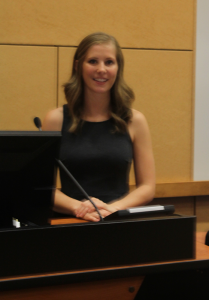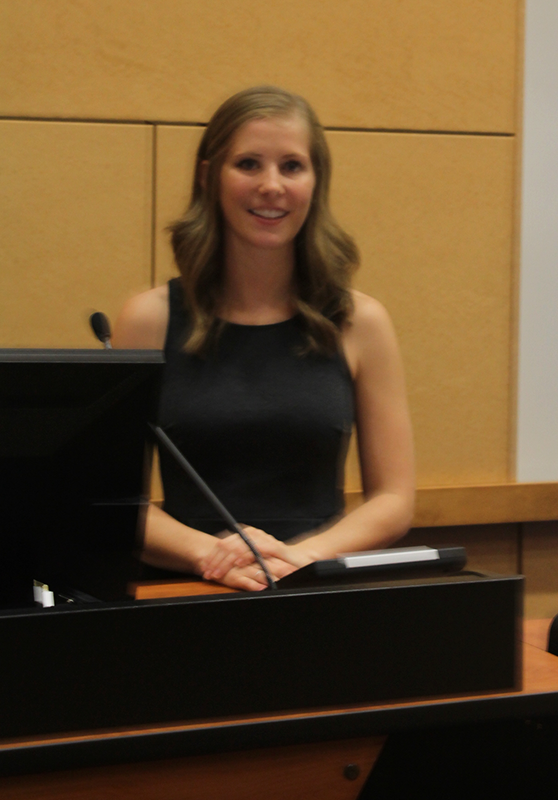CADD speaker series addresses autism and developmental disabilities

The UHCL Center for Autism and Developmental Disabilities (CADD) held the second installment of their eight-part Autism Speaker Series entitled “Rewards as Tools for Success: Using Reinforcement Effectively” Oct. 11.
“We started our speakers series because we saw a need to provide more information to parents, professionals and educators in the community about effective interventions for individuals with autism and other developmental disabilities,” said Dorothea Lerman, professor of psychology and director of CADD.
The presentations are free and open to the public, and cover a wide range of subjects related to autism and developmental disabilities.
“For our speakers series we typically invite at least one autism expert, and the remainder of our lectures are given by senior graduate students in our behavior analysis program,” Lerman said. “Our graduate students have a solid foundation in behavioral interventions and at least several years of experience working in the field. This also gives them an opportunity to gain experience developing and giving a presentation for the community.”
The second installment in the speaker series was presented by Molly Shireman, applied behavioral analysis graduate major, and covered the use of rewards as a way of positive reinforcement to encourage and or compensate a specific behavior.
“Molly Shireman is a 3rd-year graduate student in our program who has previously served as a consultant in one of our local school districts and is currently serving as a clinical coordinator for our early intervention program on campus,” Lerman said.
Shireman, who grew up with an autistic sibling, has firsthand knowledge of what the families she helps are experiencing.
“I have an older brother who actually has high-functioning autism,” Shireman said. “Back when I was growing up, they didn’t have a lot of services back then, especially support services for families with a child with autism, so I wanted to dedicate myself to that.”
Shireman currently works in the Applied Behavioral Analysis Skill and Intervention Program (ABA-SkIP) of the CADD, which is located in the Arbor Building.
“I’m one of the clinical assistants,” Shireman said. “We have eight kids that come in for 15 hours a week and receive services for up to two years each. We work on skill acquisition, problem behavior reduction and parent training.”
Sandra Matteson, a Pasadena Independent School District educational diagnostician, works with school psychologists and therapists to assess a student’s needs and has attended multiple CADD presentations.
“I work with autistic children and do parent training once a month,” Matteson said. “The presentations give me resources to bring back to them as well as the district, the community and the teachers. It’s a good resource tool for me and brings the latest research techniques.”
CADD has various resources and services available including the Severe Behavior Disorders Research Clinic (SBDR) and the Verbal Behavior Clinic. The next installment of the autism speaker series, entitled “I Don’t Want to Do That! Reducing Problem Behavior to Escape or Avoid Things,” will be held Nov. 15. To attend a speaker series event, RSVP on the CADD website.

